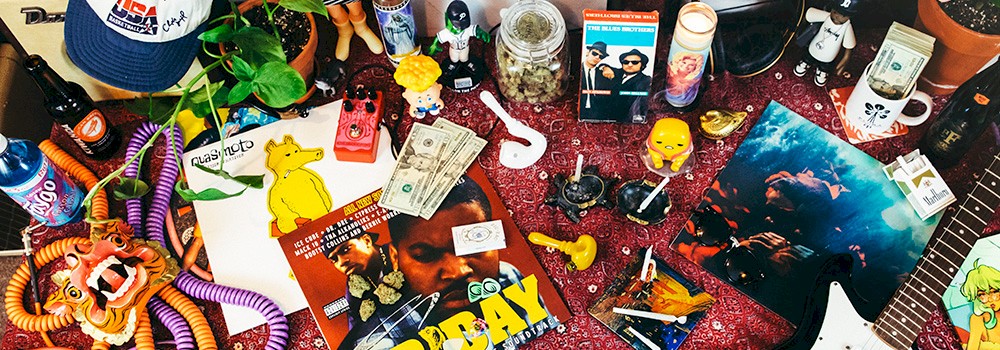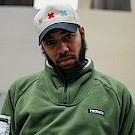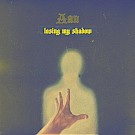For some, the new era of legal cannabis has changed lives. For others, it’s provided a validation of choices they no longer have to hide. In conversation with R&B diva Reva DeVito, hip-hop artist Myke Bogan, and Mimicking Birds’ bass and keyboard player Adam Trachsel, we examine what normalization looks like for artists who have always had a relationship with the plant.
Reva DeVito
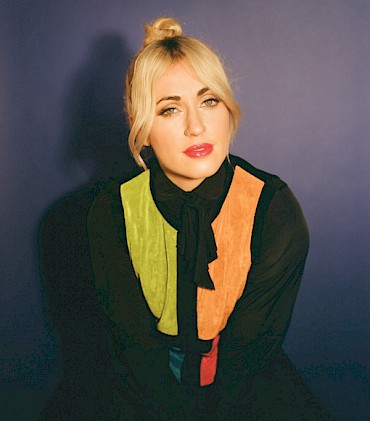 Photo by Keanu NarcisoAs someone raised in the PacNW and artistically influenced by equal parts hip-hop, classic rock and bossa nova lounge rhythms, weed is many things to R&B singer-songwriter Reva DeVito.
Photo by Keanu NarcisoAs someone raised in the PacNW and artistically influenced by equal parts hip-hop, classic rock and bossa nova lounge rhythms, weed is many things to R&B singer-songwriter Reva DeVito.
“I think top three are: One, I like how it draws me into my senses, and how it makes me feel in touch with my body and the happenings around me,” DeVito describes. “Two, it’s great for a tummy ache. Three, the rituals.”
The plant in question has played varied roles in her life up till now. From knife hits in high school, to the uplifting strains that helped her find a healthy fitness rhythm, to a side job trimming that supplemented her music career, DeVito’s relationship with cannabis empowered her to take her wellness (both physical and creative) into her own hands. “It turns down the volume of my thoughts,” DeVito says, “and lets me play with the moment.”
But she has rules: Never get high and perform. Leave the drinking for letting loose. Use weed to focus and increase productivity.
That being said, the presence of cannabis in her life is always going to be a part of her musical persona.
“It isn’t overt, but I do like to expose my connection to weed in a tasteful way,” DeVito notes. “I love getting high and playing with melodies, but I also love writing sober. I think it’s important to explore different aspects of yourself while being creative.”
Myke Bogan
Myke Bogan is an old-school, classic kind of stoner who’s always used cannabis to regulate throughout the day.
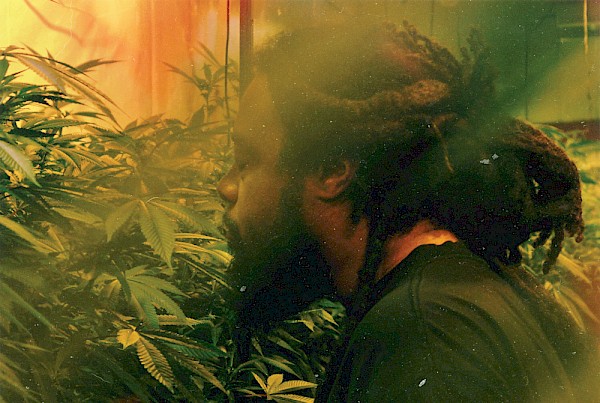 Myke Bogan at Hood River’s Bula Farms: Photo By Tim Slew“I still get my weed from homies that grow or just always have it,” Bogan says. “I don’t get into strain names, or even dab. I roll joints every day and smoke a Backwood on occasion.” Although Bogan’s enjoyed the ritual since high school, he kept it at bay while in school, going on to manage an athlete’s demands playing Division I football at the University of South Dakota.
Myke Bogan at Hood River’s Bula Farms: Photo By Tim Slew“I still get my weed from homies that grow or just always have it,” Bogan says. “I don’t get into strain names, or even dab. I roll joints every day and smoke a Backwood on occasion.” Although Bogan’s enjoyed the ritual since high school, he kept it at bay while in school, going on to manage an athlete’s demands playing Division I football at the University of South Dakota.
“After that, I was free to get super high, and I began to write music while my friends played FIFA and listened to 9th Wonder instrumentals.”
Like many West Coast natives, cannabis was never all that taboo for Bogan, and neither was the idea of it being a normal part of life. He’ll bring friends from out of town to dispensaries for the legal weed experience—and is collaborating with Hood River’s Bula Farms on a special cultivar release to coincide with his upcoming album—but ultimately, legalization didn’t have a major effect on the way he feels about cannabis. That being said, Bogan’s habits have certainly evolved. Now a father, he finds himself with a very different set of day-to-day obligations (and soundtrack). Though, his music still frequently professes his love for “Skunk Nugs”—watch below.
“I usually smoke a little in the morning before I start banging instrumentals and writing music. And then again before I go to bed. I don’t sleep well without a joint and an episode of The Office.”
Adam Trachsel of Mimicking Birds
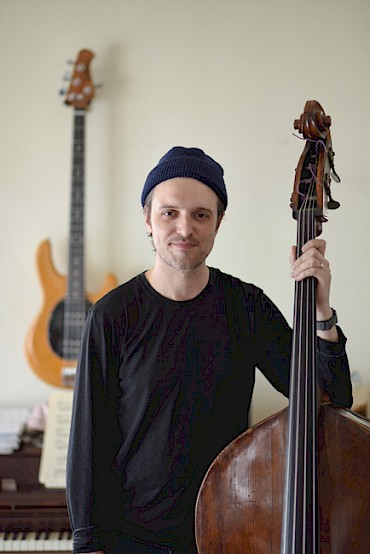 Photo by Jonathan LangeWhen Adam Trachsel started experimenting with weed in his teenage years, he had no idea he was simultaneously treating early cancer symptoms. “Looking back, I know that this was about when my tumor would have started growing,” he tells. “In 2013, I was diagnosed with a low-grade brain tumor after a seizure, which is often the case. I was immediately put on anti-seizure drugs.”
Photo by Jonathan LangeWhen Adam Trachsel started experimenting with weed in his teenage years, he had no idea he was simultaneously treating early cancer symptoms. “Looking back, I know that this was about when my tumor would have started growing,” he tells. “In 2013, I was diagnosed with a low-grade brain tumor after a seizure, which is often the case. I was immediately put on anti-seizure drugs.”
The side effects were awful, physically and mentally. “But so are seizures,” Trachsel notes. He’d always smoked flower and it addressed some of the unpleasant symptoms, but he still found himself getting uncharacteristically angry and frustrated. He became a medical marijuana patient soon after the diagnosis, interested in taking advantage of Oregon’s medical laws to possibly soothe just the side effects he was experiencing from his prescriptions. A friend introduced him to a conscientious grower experienced in making Rick Simpson Oil (RSO) out of cannabis extract, and “everything changed.” Trachsel found that the cannabis he already enjoyed to soothe depression and sedate him when restless also seemed to counteract drug side effects and inhibit epileptic attacks. From the first dose, he was reminded what it was like to feel like himself again: the return of his appetite, equilibrium and physical comfort, allowing him to get back to familiar rhythms in the studio (where he’s contributed to projects for Modest Mouse, The Lumineers and Vance Joy).
“The one-to-one ratio of THC and CBD cannabinoids in RSO are very effective for treating greater underlying medical problems,” he explains. “The idea being that both aspects work in tandem in your system. THC is great for pain and relaxation; CBD calms the brain and the body, helping with sleep, anti-anxiety and lots more. Together they seem to cancel out any of the negative effects THC can have for some people.”
Growing up in Iowa, Trachsel started without any understanding of this plant that helped him regain a normal life. “Marijuana was taboo to me when I was a kid. But I was always fascinated by 1960s culture and obviously marijuana was a part of the movement, so I was always curious.”
His inaugural teenage puffs not only opened his mind to how the plant made him feel better, not worse, but stand out as a moment that taught Trachsel the responsibility of an educated perspective. “Smoking for the first time was eye-opening; it was my first real peek behind the curtain of misinformation, which made me start to question more about the world around me and encouraged me to think for myself.” His instincts told him not to feel ashamed if it made him feel good, made him think more, and didn’t take away from his ability to function as a normal person. Learning about the plant and the surrounding social injustice caused by cannabis prohibition only reinforced his awareness and appreciation for critical thinking. Most significantly to this music-rapt teenage boy, it revealed another facet to experiencing sounds.
“As a kid already deeply absorbed in music, I found it enhanced both the listening and playing experience,” Trachsel says.
Since moving to Oregon, getting his medical card, and learning more about the plant as research unearths more accurate knowledge, Trachsel has done his part to help spread the word to fellow consumers dealing with seizures and cancerous tumors. He shares the information he’s learned shopping for his medical needs, pointing out pro tips like how the tincture category isn’t bound by the same 50 mg cutoff that comes with edibles. “Some full extract cannabis oils and tinctures contain up to 500 mg of THC and CBD, for comparable prices and available for purchase without a medical card.”
Trachsel’s experience led him to find jobs in the cannabis industry that gave him opportunities to help others find the medicinal aid they’ve been seeking for their unique conditions and prescriptions, keenly aware of the obstacles to all consumers while cannabis is still a Schedule 1 drug.
“There should at least be a sort of federally accepted medical license so patients can travel with the product that keeps them alive,” says Trachsel, who himself was reminded of the consequences when caught with CBD while on tour in Texas back in 2015. He spent a night in jail, but charges were eventually dropped. Although he can’t change Texan laws single-handedly, Trachsel works part-time at the NE Portland dispensary Uplift Botanicals to help inform and advocate for educated CBD treatment. “People should not have to break laws to find relief.”

